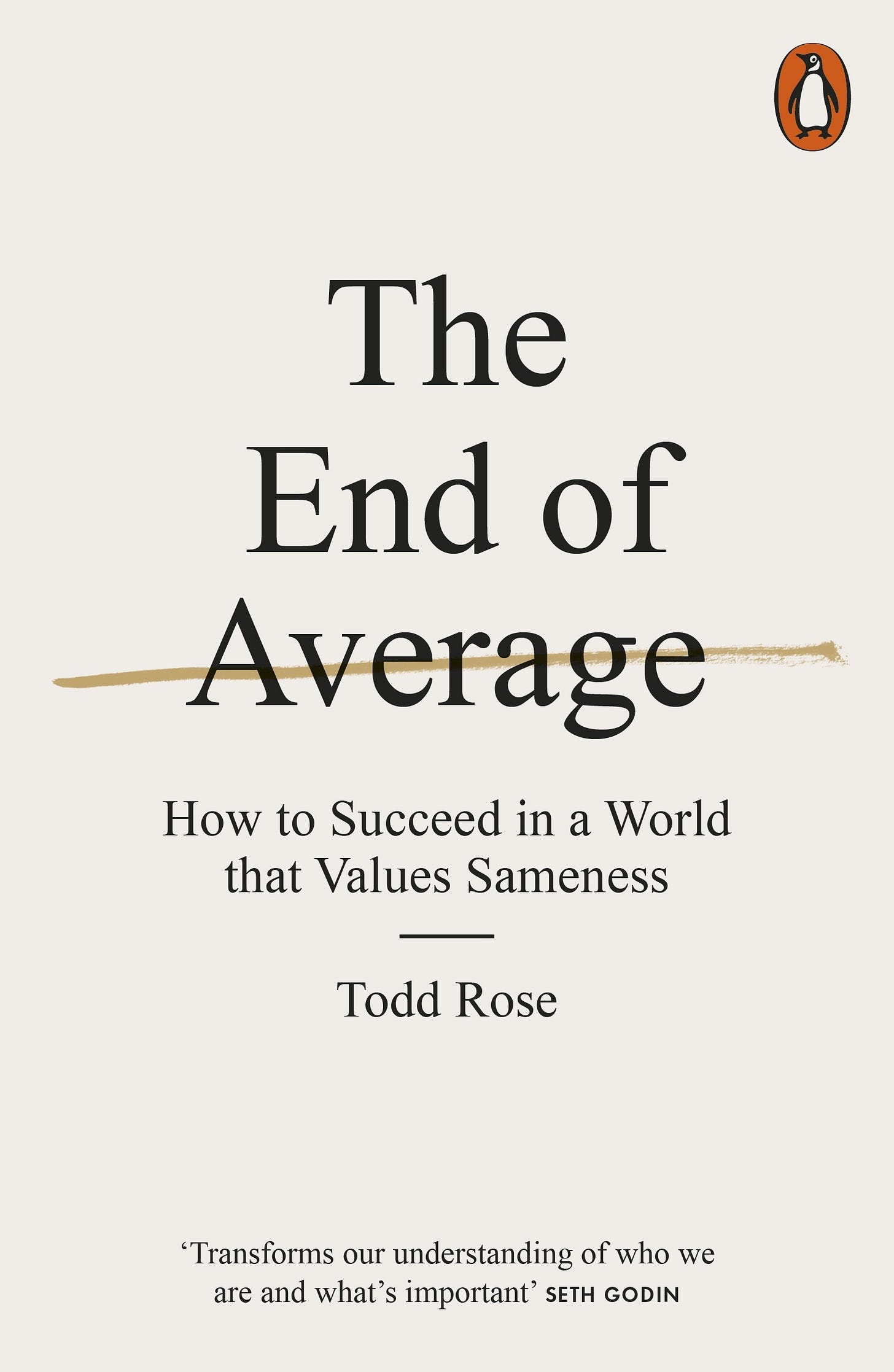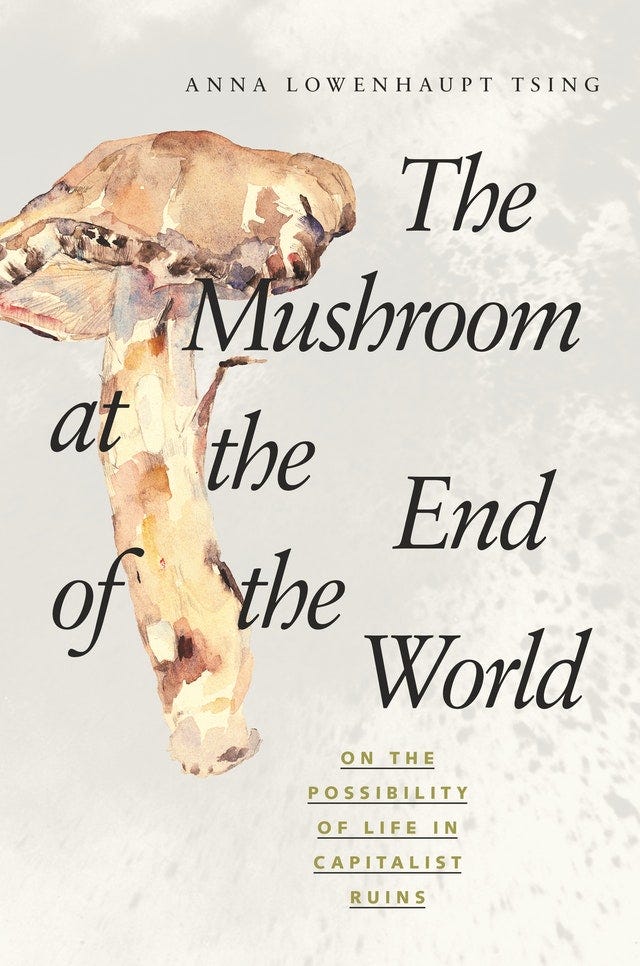#6: Five books that changed how I think about complexity
...and why I fell in love with each of them.
I’m Luke Craven; this is another of my weekly explorations of how systems thinking and complexity can be used to drive real, transformative change in the public sector and beyond. The first issue explains what the newsletter is about; you can see all the issues here.
Hello, loyal subscriber,
I read constantly. Articles, books, tweets, half-finished PowerPoint slides; sometimes I feel like both my vocational and personal lives are built on the practice of reading. The irony of that reflection is that I consider myself to be a terrible reader. I seldom read something cover-to-cover. I never finish something in one sitting. My bookcase is a collection of bookmarks as much as it is one of books. There are, though, noticeable exceptions to this rule. Books that, over the years, have completely and utterly drawn me in. It’s hard to entirely explain what is special about each of them but, my best guess is that they’ve helped me understand complexity in new way. It would be hard to describe any of them as about complexity. In general, I abhor books about complexity. It’s not that there aren’t some great introductory texts—there are—but, to my mind, they focus far too much of the technical dimensions of complexity theory and far too little on the experience of living in a complex, messy world.
So, in what follows, I share five books that have changed how I think about complexity. They are the five I commonly reach for when I’m asked for recommendations for introductory texts to the field. Perhaps it’s slightly uncooperative to not give people what they are actually asking for, but I’m happy to live with that. I’m of the firm view that we only really learn about complexity obliquely, through experience, and because of strange and serendipitous connections.
1. The End of Average
The End of Average by Todd Rose is one of my all-time-favourite popular science books. A master storyteller, Rose blends contemporary research in sociology and psychology with a searing polemic about the limits of understanding the world through averages.
Our cultural obsession with averages makes us very bad at engaging with complexity. We use them to ignore variation, to standardise, and to tell simple stories about linear cause and effect. The book, like many of the best in its genre, is full of powerful anecdotes I won’t spoil that illustrate the dangers of this obsession left unchecked. Despite its clickbait title, accepting the limits of averages does not mean doing away with them altogether. They, like many complexity ‘tools’, can help us make sense and respond to complexity, if we wield them carefully, with modesty and purpose.
2. The Mushroom at the End of the World
The Mushroom at the End of the World: On the Possibility of Life in Capitalist Ruins by Anna Lowenhaupt Tsing is a quiet, understated ethnography of the Matsutake mushroom. Tsing follows the journey of matsutake as it criss-crosses continents and commodity chains.
Tsing is a beautiful writer, with an incredible ethnographic talent for using small things to answer big questions. Her first book In the Realm of the Diamond Queen, is itself a critique of averages and how they are used to enforce consensus and coherence. In Mushroom at the End of the world, she focused her attention on how capitalism drives anthropocentric thinking and limits our ability to imagine what it means to live well in a multispecies world. Much like mycorrhizal networks, which are increasingly used as a metaphor to understand human complexity, the book is full of promising contradictions—“moments of harmony and dissonance” that make it possible to see the world in different ways.
3. Every Twelve Seconds
Every Twelve Seconds: Industrialized Slaughter and the Politics of Sight by Timothy Pachirat is not a pleasant book to read. It presents Pachirat’s personal account of going undercover for five months in a Great Plains slaughterhouse where 2,500 cattle were killed per day, layering vivid narrative with a searing analysis of the politics of visibility and distance.
Those that know me well will have heard me use sight-based metaphors to explain how people make sense of complexity. Pachirat does this better than anyone else. His prose is sharply provocative, challenging the reader to understand how distance and concealment operate as mechanisms of power in modern society. Would it matter, he asks, if the slaughterhouse had glass walls? (probably not, or at least not enough). For Pachirat, the politics of sight is about making visible what is hidden. It seeks to break, literally or figuratively, “zones of confinement” to bring about social and political transformation. My view is that systems change is almost always about a politics of sight; what we are empowered to see, what we choose to see, and what we do with that knowledge.
4. Normal Accidents: Living with High Risk Technologies
Normal Accidents: Living with High Risk Technologies by Charles Perrow is the only book on this list published outside of this millennium. Rightly so. It is a classic. Perrow was an expert in the social dimensions of technological risk and devoted much of his life to understanding why things go wrong in complex systems.
Reading Normal Accidents was a turning point in the early stages of my PhD. The concepts of tight and loose coupling helped me understand the concept of interdependency in complex systems in an entirely new way. Much like the other authors in this list, Perrow is a master of the powerful anecdote, drawing much of his inspiration from the Three Mile Island accident. If you liked the HBO Series Chernobyl, you’ll like Normal Accidents.
5. The Body Multiple: Ontology in Medical Practice
The Body Multiple: Ontology in Medical Practice by Annemarie Mol is another book about perception in complex systems (yes, I’m willing to acknowledge the trend...!). Powerful in content and in form—the book is made up of two parallel, interwoven texts—Mol tackles questions of perception and truth through an examination of day-to-day diagnosis and treatment of atherosclerosis. What is atherosclerosis, after all? Is it a medical condition? Is it an embodied experience of ill-health? What would it mean for it to be both?
Multiplicity is fast becoming a theme of this newsletter, which is probably because it is the element of complexity I struggle with the most. It’s one thing to acknowledge that we contain multitudes, but another entirely to understand what is to be done with that multiplicity. What is powerful about The Body Multiple is how, through vivid storytelling, Mol demonstrates that multiplicity does not have to imply fragmentation. Different perspectives can (and should!) be bought to be bought to bear on a single object.
Each of these books speaks quietly to complexity in its own way—to entanglement, multiplicity, interconnectedness, and power—but none of them are about complexity. What makes each of them brilliant is how they approach complexity obliquely. As Marcel Merleau-Ponty once said “that which is sought too deliberately is not obtained.” You can’t find what you’re looking for in a textbook.
Attentive readers will notice that the five books above are all non-fiction. That was not an entirely intentional choice—it is a reflection on my reading habits more than it is on the genre itself. I’ve also been deeply impacted by works of fiction and am constantly struck by how narrative can be used to unmask complexity. I’ve been working on a number of short pieces for this newsletter that will focus on what specific works of fiction can teach us about complexity—from Moby Dick, to City and the City, to the little-known play Concussion. Now all that’s left to do is write them and I am quickly falling behind schedule. Perhaps announcing it here will keep me to task. There is only one way to find out.
By the way: This newsletter is hard to categorise and probably not for everyone—but if you know unconventional thinkers who might enjoy it, please share it with them.
Find me elsewhere on the web at www.lukecraven.com, on Twitter @LukeCraven, on LinkedIn here, or by email at <luke.k.craven@gmail.com>.







Enjoying these posts. Thanks for writing!